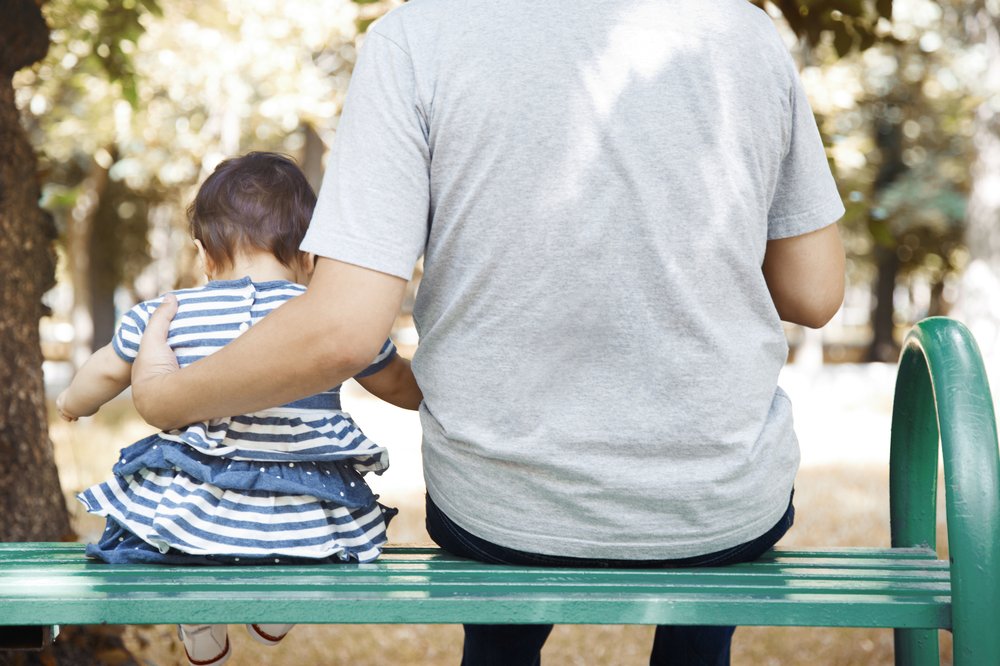Lawyers find 'overpolicing' of Black, Hispanic parents in NYC child welfare investigations
April 17, 2025, 6:30 a.m.
A new report finds that low-income Black and Hispanic New Yorkers are disproportionately targeted in child welfare investigations, with long-term financial implications for those under scrutiny.

A new report says the city’s child welfare investigations are disproportionately targeting low-income Black and Hispanic New Yorkers, causing them to be denied employment or lose the jobs they need to take care of their families.
Legal Services NYC, a legal advocacy group, combed through data from the city’s Administration for Children’s Services from January 2020 through July 2022 in a new report and shared their findings exclusively with Gothamist.
They found that while Black and Hispanic New Yorkers make up 48% of the city population, they accounted for 81% of investigations.
The group also found that in 2022, more than 70% of substantiated reports — meaning investigators found evidence to substantiate the allegation — were categorized as neglect. ACS defines “neglect” as the failure of a caretaker to provide needed food, clothing, shelter, medical care or supervision.
Advocates say in many cases, when ACS is investigating “neglect” they are ultimately penalizing families for being poor. One expert cited the example of a family struggling to put food on the table as something that could spur an investigation of neglect.
The consequences of these investigations can be crushing for parents: Cases found credible can affect parents for years, showing up in employer background checks and barring them from certain jobs, such as those working with children. Reports for neglect remain in the state’s central registry system and pop up in a background check for eight years.
“There's an overpolicing now that's occurring, that is disproportionately affecting Black and Hispanic folks in New York City and survivors of domestic violence,” said Washcarina Martinez Alonzo, a senior staff attorney with the group who helped author the report.
ACS, which conducts the city’s child welfare probes, said it’s working to reduce racial disparities by encouraging people in some cases to call a city support line (212-676-7667) instead of calling the state abuse hotline so that the agency can get families the help they need, rather than be forced to investigate them. They said they're also partnering with schools to help families with high needs and rerouting cases that don’t involve abuse to social workers who work to stabilize families, instead of investigating them.
“Through methods like decreasing unnecessary child welfare involvement and promoting supportive services that better stabilize families, we work to reduce both the racial disparities within the child welfare system and the number of families unnecessarily impacted by the child welfare system,” ACS spokesperson Marisa Kaufman said.
“We look forward to reviewing the report once it’s made public and we will always continue to listen, learn and evolve our critical work to uplift New York’s children.”
ACS is legally required to respond to reports of child abuse or neglect they receive from the state — including teachers, nurses, neighbors and school officials — even if the reports are made anonymously. As part of an investigation, ACS can make unannounced visits to a child’s home.
At these visits, an investigator is supposed to give parents an information card that tells them they have a right to refuse entry.
However, advocates say that parents don’t always get these cards, and in other cases, the card is included in a packet with other information that can be hard to sort through.
That’s why many advocates are calling on state lawmakers to pass a bill banning anonymous reporting of child abuse allegations and asking that parents be given a Miranda-like warning and be read their rights when investigators come to their homes, informing them of their rights to remain silent, speak to a lawyer or not permit entry.
Joyce McMillan, executive director of JMAC for Families, a nonprofit advocating for the end of family policing, said in most cases the issue in the home is not neglect, it’s poverty. She listed complaints that can prompt an ACS investigation: lack of sufficient food in the home, using candles instead of electricity because they can't afford to keep the lights on, or a crowded home.
“Once a family is investigated they’re at risk of being separated,” said McMillan. What most families need, she said, is a little more support and money.
In the report, Legal Services NYC also identified 28% of investigations between 2020 and 2022 that involved a domestic violence victim or domestic violence in the home.
People can report any allegation of abuse or neglect to the state hotline for child abuse and the state deploys the local child welfare agency to investigate. According to the report, this opens the door for false reporting or for anonymous callers making false accusations and weaponizing the system to settle grievances.
”Anybody can make this call. Your neighbor can make this call. Your landlord can make this call. Your abusive ex can make this call. Anybody can make it,” said Martinez Alonzo. “They don't ask for the information of the folks making the report, and suddenly you get child welfare involvement in your life.”
Reports for abuse can show up in a background check for 28 years.
McMillan said the consequences of these cases can haunt families for years, even when they are for neglect.
“You can’t be an MTA bus driver, kids may be on your bus,” she said. “You can’t work at an ice skating rink, you can’t work at a bowling alley, these are places where children may be. You can’t work at an amusement park, you can’t work in the library, you can’t be a janitor in a school.”
NYC offers developers a deal: Build affordable units, we'll help cover tenants' rent When you gotta go: NYC Council vows to make it easier to find a public bathroom Federal food assistance cuts would crush 1.8M NYers, city officials say